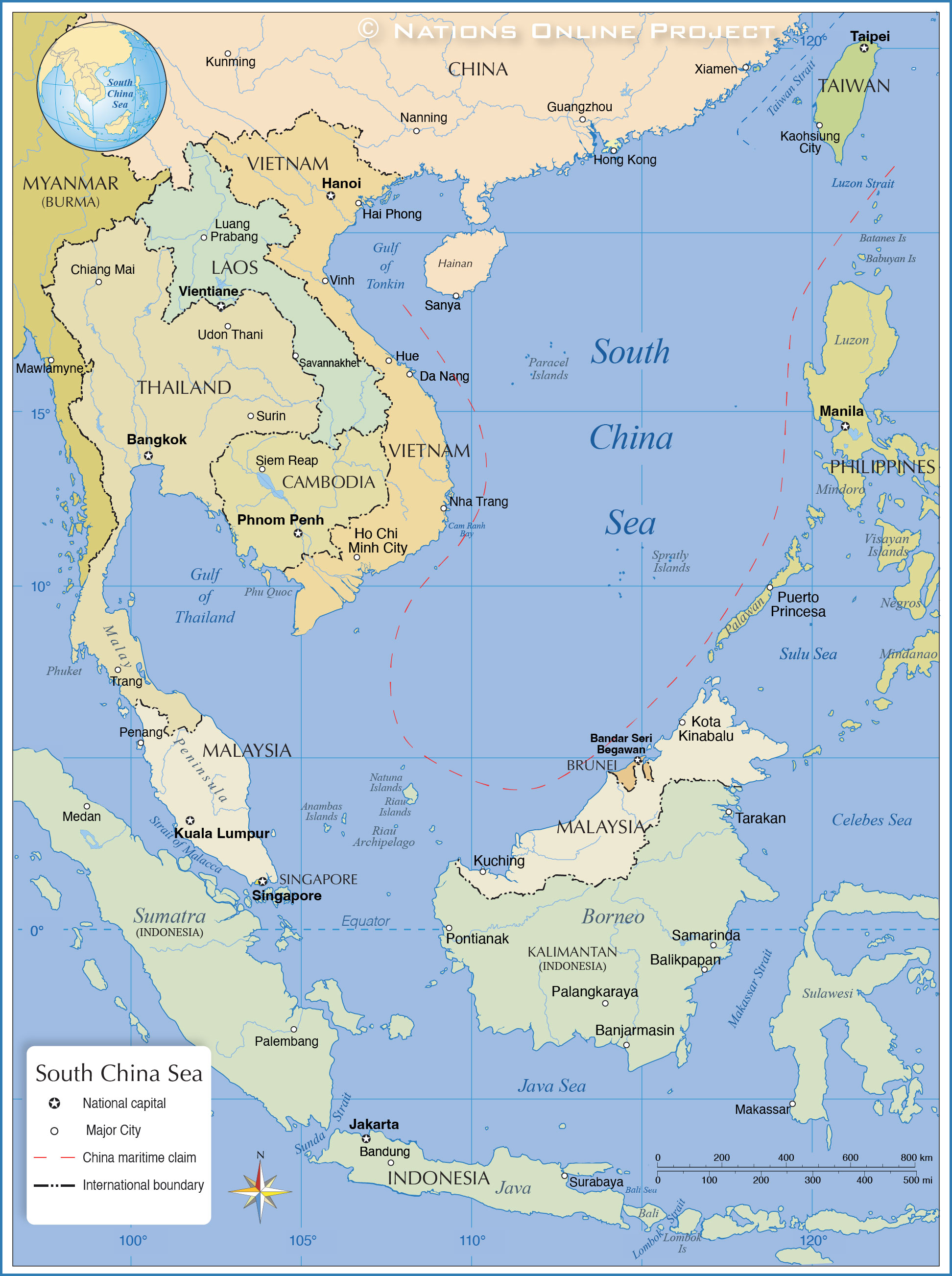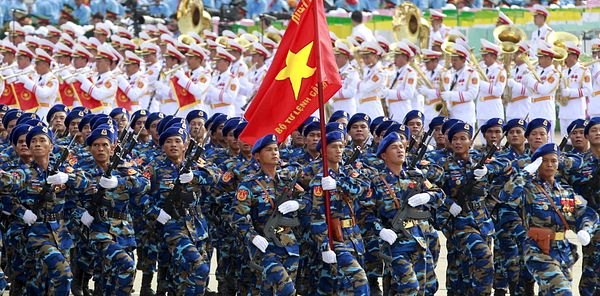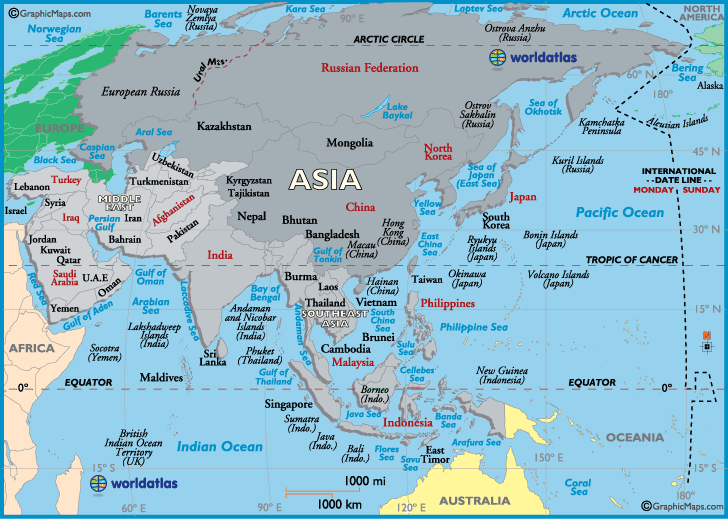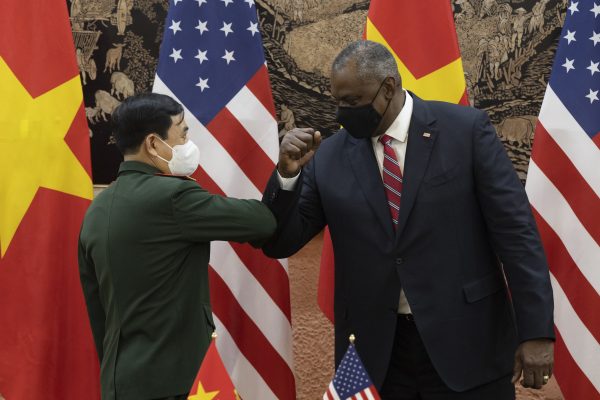Why does Vietnam want to be like Saudi Arabia?
No, we are not talking about the recent 2022 World Cup qualification between two countries in the detail. And we do not talk about soccer (football) either.
We are talking about politics. Two nations, one in West Asia, one in Southeast Asia. Both have nothing in common because of geography apart, they are also differed in religious nature. For the last 1,000 years, nothing has changed.
But within the recent frameworks, one can conclude that they are closer than we thought of. These are the stories of two entities: Saudi Arabia and Vietnam, both far apart, yet ironically drawn together due to somehow, American interests. And this is a unique case that need to be examined - or, to be frank, why would Vietnam aim to be like Saudi Arabia?
Saudi-American relations
To go forth, we have to begin with the relationship between the Middle Eastern Kingdom and the States.
The United States had little to none of interests toward the Saudis when the Kingdom was announced in 1932, the same year Saudi Arabia conquered Yemen's Jizan, Asir and Najran. When Riyadh was at the first stage of experiencing international relations, the United States had been around for 150 years.
The World War II changed this nature. Due to war caused by Nazi Germany, this led to disruption of oil facilities and economic trades between Europe and the United States were negatively affected. The necessary of finding replacement emerged and Washington had to pivot to the Middle East. In 1945, following an invitation by the U.S., the founder of Saudi Arabia, Abdulaziz "Ibn" Saud, met with the ailing President Franklin Roosevelt in USS Quincy.
 |
| Saudi King Ibn Saud met President Roosevelt in USS Quincy. |
That fateful meeting on 14 February 1945, two months before President Franklin's death, set the stage of Saudi-American relations. Realising the abundance of Saudi Arabia's oil reserves, at that time yet to be exploited 100%, the United States promised it would safeguard the Saudi state, in exchange for cheap oil access. Ibn Saud happily accepted as part of Saudi neutrality throughout the World War II.
Riyadh understood so well the addiction of oil of the West, and having American support would guarantee it to become richer, while at the same time, it could continue to maintain the authoritarian rule of the monarchy. Such power was utilised by the Kingdom when the Yom Kippur War broke out in 1973 - the King of Saudi Arabia during that war, the liberal Faisal, organised an oil embargo. In the end, the United States backed down and pressured Israel, also an ally of Washington, to cease activities against fellow Arab states.
This forced Washington to rethink twice before angering Riyadh. Therefore, the United States has been unwilling to criticise Saudi Arabia, even when the country re-imposed harsh religious order from 1980s. A strong American garrison was even sent to the country before Iraq invaded Kuwait in 1991, before a complete withdrawal was made, which was done in 2003. The religious nature of Saudi Arabia, being the home of two Holy Mosques (Mecca and Medina), negatively affected American presence and a key reason behind the September 11 attack ten years after the Gulf War.
Since then, the United States maintains the military relations and continues to sell weapons, while at the same time willing to turn deaf to Saudi Arabia's consistent brutal methods of human treatments. Washington also provided Riyadh intelligence about Yemen War to contain Iran.
 |
| Saudi Arabia has been the main recipient of U.S. weapons for decades. |
Today, under President Joe Biden, the relations are in difficult moment due to Biden's human rights first policy, but this is unlikely to deter the connection. The United States still needs to maintain trades and weapon selling as it understands the risk of antagonising Saudi Arabia.
Why Vietnam admired Saudi Arabia? It is more complicated
Although Saudi Arabia and Vietnam were in the opposite pole throughout the Cold War, they offered similarities and, in some aspect, the Vietnamese leadership admired the Saudi monarchy.
Vietnam, like Saudi Arabia, is run by an authoritarian regime, albeit different in nature. Yet the Saudi monarchy has proven to be flexible, at least, when it comes to relations with the United States. In the eyes of the communist rulers in Hanoi, the Al Saud monarchy has proven why dictatorships can still be U.S. friends without being affected by American requirements.
 |
| Saudi Arabia's ability to maintain alliance with the United States without democratisation served as a set of inspiration for the Communist Party of Vietnam. |
This, however, does not come for free. To get this kind of treatment, Saudi Arabia has to offer the United States something in exchange for.
What does Saudi Arabia offer?
Saudi Arabia has several few things in charge that gave Riyadh an edge than Washington.
First, Saudi Arabia is the home of the two most notorious Holy Cities in Islam, Mecca and Medina. The two Islamic cities are where Prophet Muhammad born and died. Muslims in life must visit these two cities once to fulfil their commitment to the belief. The United States have struggled to maintain good relationship with Muslims, so it is necessary for Washington not to touch on the Mecca and Medina affairs. Instead, being on the Saudi side is necessary. The best use of American Islamic weapon occurred in 1980s, when the Soviets invaded Afghanistan - the United States backed Saudi Arabia's weaponisation of the two Holy Cities, with Riyadh issued jihad against the Russians. On the same time, if the United States could not make everything right, Saudi Arabia would likely let Muslims to use the two Holy Cities as a platform against Washington, like what happened in 1973.
Second, resources. While oil is not for last, the Kingdom has the largest oil reserves in the world and also holding significant gas reserves. Riyadh can also blackmail Washington like in 1973, so while the United States is seeking to reduce dependence from Saudi oil, it is still concerned about antagonising Saudi Arabia will lead to oil disruption toward Washington and allies. It is also an important importer of gas and the United States has been more interested in this natural weapon of the Kingdom, now that tensions between the United States and Russia had increased following Russian invasion of Ukraine, with snap sanctions hurt the Russian economy and disrupted international trades. While de facto ruler, Crown Prince Mohammed bin Salman has ignored Joe Biden, his father, King Salman, is aware of maintaining relations with Biden and spares no efforts doing so.
Third, geography. Saudi Arabia located in a very strategic sea route. It controls two seas: the Red Sea and the Persian Gulf. The Red Sea is very near the Suez Canal controlled by its neighbour, Egypt, but currently, Egypt is an ally of Saudi Arabia so the issue is not serious and can be resolved. The other, the Persian Gulf, lies just apart from its arch-enemy, Iran. Iran has been under an authoritarian regime since 1979, and the Iranian regime is willing to take down all the Arab monarchies in the region, as part of Iran's expansionist quest for two Mosques. But Saudi Arabia is powerful economically so it is necessary to invest for oil route. Saudi oil is frequently sent to international tankers, including the United States ones. Saudi Arabia needs security and the United States is obliged to deliver just that.
| The Persian Gulf. |
Three things combined allow the Saudi government a leverage unseen by elsewhere. The large natural reserves, the history of Islam, and its geographical location, made it clear that the United States must consult Saudi Arabia carefully. More, the U.S. banks on Saudi military, even though how experienced the Saudis are, is questionable - since Saudi Arabia knows that its eternal enemy is Iran.
Vietnam's parallel offer?
Vietnam offers a rather more unique role for the United States.
First, geography. Vietnam is very near China, but it has a strategic control over the South China Sea. It has the longest sea coastline among the mainland Southeast Asian nations. If Vietnam can utilise this naval advantage, it may possess one of the most formidable navies in the region. This is also helped by historical hostilities Vietnam has toward China, as Vietnam served as a powerful barrier to deal with a potential Chinese threat, which has risen due to China's irredentism.
 |
| Vietnam's location in South China Sea. The Nine-Dash Line of China also exists in this map. |
Second, there is a military reason. While Vietnam's policy is Four Nos, which prevents Vietnam from joining any military alliance, it hosts the port of Cam Ranh, one of the naval eyes used during the Vietnam War by the Americans. The Americans are unlikely to be welcomed due to Vietnamese regime's insistence in Four Nos, the Vietnamese authorities also sought to denounce criticism over Four Nos that it only reinforced Vietnamese isolation, by stating the other "Four Avoids" principle. The Four Avoids, as explained by BBC Vietnamese branch, are: (1) Avoid military conflict; (2) Avoid economic isolation; (3) Avoid diplomatic isolation; (4) Avoid political dependency. In this case, Vietnam wants to avoid military conflict with China, its ancient enemy, thus it needs to use the 1st avoidance. That avoidance meant it must work with a nation that could be powerful enough to deter China. This made its Vietnam War enemy, the United States, likely chosen. Vietnam boasts the strongest military force, if necessary, and this force will be likely the biggest hope Southeast Asia can rely on.
 |
| Vietnamese troops marching on its anniversary in 2018. |
Third, history. The most important lesson the United States has to be eager with. While Vietnam's regime aggressively persuades Four Nos with complete disregard of a potential isolation and still distrusts the U.S. for the Vietnam War, its relations with China is far more turbulent due to 2,000 years under constant threat of its giant neighbour. The Americans knew this, and they must go for good, even when they have a lot of risk trusting such an unpredictable communist regime. But this is still worth regarding, as Communist China has already turned increasingly chauvinistic and nationalistic, and no longer cared about communist solidarity - something Hanoi will feel scared to deal with since it sticks to Marxist ideology.
So when Saudi Arabia offer the United States resources, sea and religious authorities; Vietnam may also offer the United States and the West the historical experiences with China and its prestigious location. More to say, in fact, the locations of both Saudi Arabia and Vietnam can commonly be combined as the most desired passage for oil tankers, which is also crucial for many of the countries.
 |
| Saudi Arabia and Vietnam in Asia's map. Saudi Arabia and Vietnam both located in important oil tanker movement, with Saudi Arabia the starting point and Vietnam as the choking point. |
But why complicated?
Saudi Arabia and Vietnam are both authoritarian states, but the differences are plenty.
In Saudi Arabia's case, it has never been attacked by the United States nor her allies. Instead, it has only fought wars against fellow Arab nations and Iran since establishment, the latter via proxies. Moreover, Saudi Arabia runs a government with an exclusive religious order based on Salafi doctrine, though it has lessened its control in recent years. It's also far more powerful economically, being a member of G20 and can influence everyone if it wants. Criticising Saudi Arabia is nearly impossible due to its religious power Riyadh obtained, thus nobody ever shows clear willingness to deal against the Kingdom. Saudi Arabia is also very manipulative, and has been an ally of the West for decades.
In Vietnam's case, since it was bombed by the United States throughout the Vietnam War, the later wars against neighbours China, Cambodia and Thailand could not decrease the distrust toward Washington. Its economy is growing, but far smaller in size and can't even match to that of Thailand. Its weak political power is also reinforced by living under shadow of Beijing, the unfriendly communist neighbour in the north. Moreover, Vietnam is pretty weakened from the fact it does not have any military ally to rely with, not saying it has no defence treaty with Russia, its closest ally supposedly.
I will not judge out these issues, because these are the biggest barriers. Indeed, Saudi Arabia got the highest merits because it has utilised advantages from the ashes of the sand, whereas Vietnam has chosen to stuck with the past and has not been able to move forward to overcome its anti-Western grievances. But, given the locations of both Saudi Arabia and Vietnam, one can be safe to say that, whoever won the hearts of these authoritarian nations could achieve the strategic location of South China Sea.
How far will Vietnam utilise this advantage?
The Communist Party of Vietnam is very mysterious and hard to understand from inner circle. We may see this nothing surprising, since it is a dictatorship with utmost censorship practiced. But because of its status, it has been aiming, rather than going democracy, it wants to strengthen the absolute power and throwing more and more dissidents to jail.
Because democratisation is never on the agenda, the only country it can think at is Saudi Arabia, as Hanoi appears to understand the pain inflicted by sanctions. It knows that Vietnam's trade with Russia is not strong enough compared to the United States or China. It wants to secure a special status within the United States like how Saudi Arabia has in order to get away with the human rights question, and also, to be given a potential shield if China intervenes.
Hanoi has some modest successes with the use of history and geography, though it is frequently interfered by the regime's anti-American memory. In term of economy, Vietnam has to win the investments from the other nations, mostly those who are close to the West (Japan, Taiwan, Israel, and South Korea), in order to maximise Vietnam's advantage.
Moreover, the other reason lies on the charisma of the Hanoi leadership. This is what set the stage - and something Saudi Arabia has done so well. When Ibn Saud met Roosevelt in the USS Quincy, the Saudi King's charisma pushed over with his might and determination, built throughout his experience of conquest of the Arabian peninsula. His descendants also proved effective by using the natural resources whilst the same time pressed the West to understand the Saudi decisions. Hanoi, meanwhile, has struggled, with old guard tends to censor and make decision based on its judgement instead of wider views. In this case, the Communist Party of Vietnam allows ego, rather than rational, to control itself, something the Al Saud will not do. This will only make it harder to have security guarantee, and, potentially, put itself to the scenario that is similar to Ukraine, no matter how the 1979 memory sustained.
Conclusion
To be frank, Saudi Arabia also feels wary about trusting the United States, but unlike the communist rulers in Hanoi, the Al Saud dynasty in Riyadh has been far more cunning and brilliant. This is why the alliance between Washington and Riyadh has sustained for decades, in spite of suspicion from both sides.
That meant Hanoi could continue to distrust the United States, but it would do everything to drag the United States on her side. It knew so well it could not match the might of China, but its aversion to democracy put them to a more Saudi-style regime. But if Hanoi leadership remains timid like how Vietnam demonstrated desperate support for Russia not to be expelled from the UN Human Rights Council (which ended in a failure), it would become a severe rupture.
Therefore, the only way for Vietnam to manage away like Saudi Arabia relies heavily on the leadership's charisma, adding with the offers it could do to galvanise the support. It will take a lot of times for this party to ever understand this.

Comments
Post a Comment